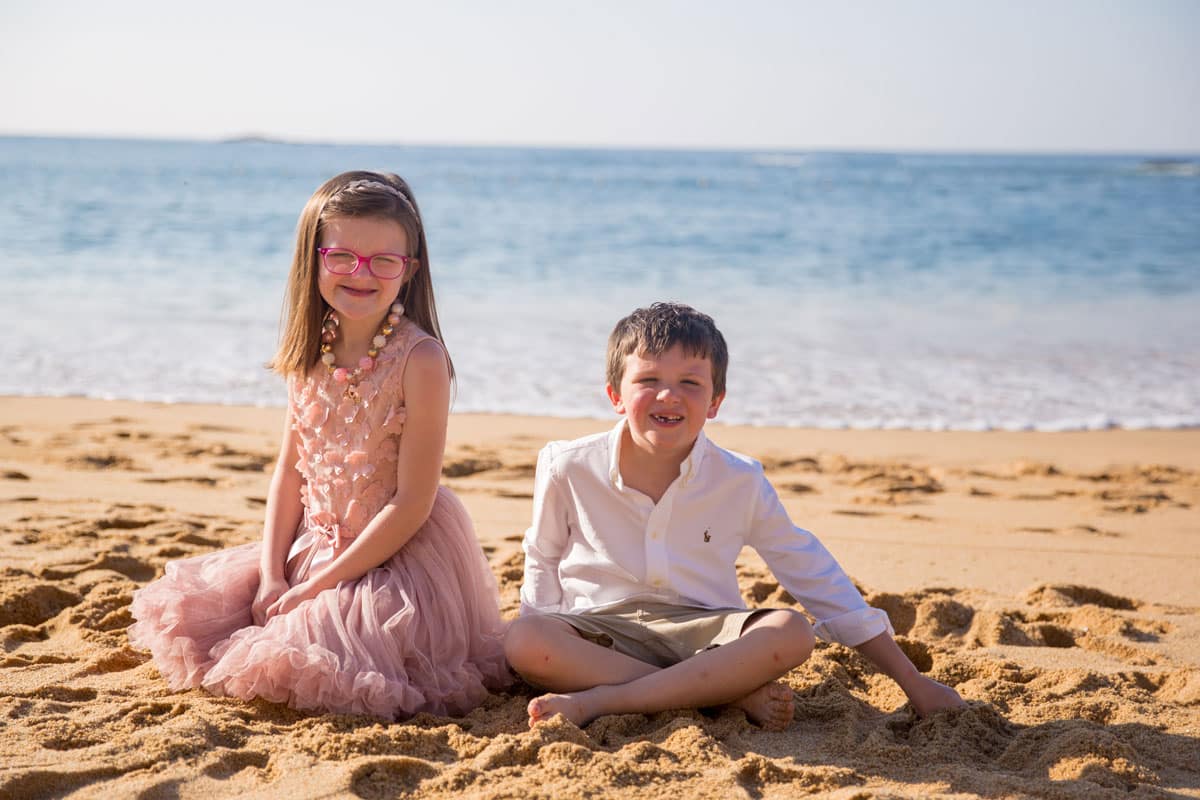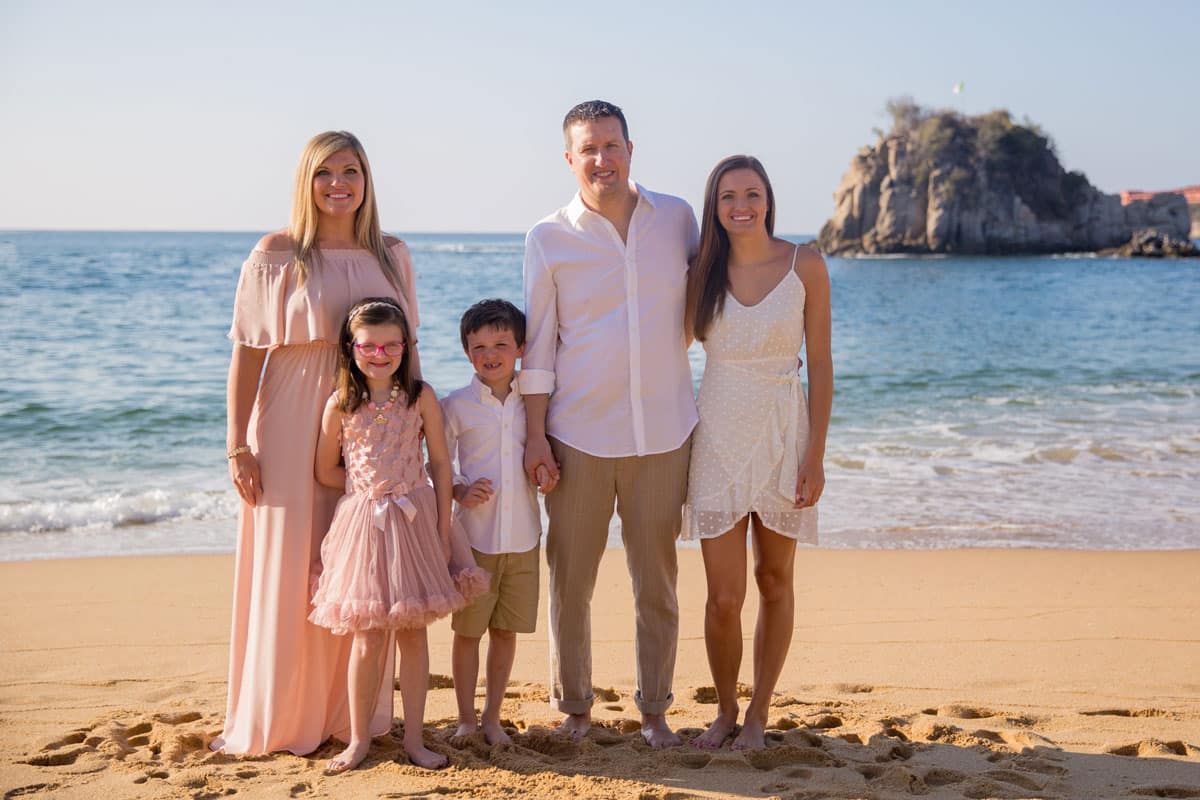I am only one, but still, I am one. I cannot do everything, but still I can do something; and because I cannot do everything, I will not refuse to do something that I can do.” – Helen Keller


Our MSD Journey
What did it feel like finding out your child has Multiple Sulfates Deficiency (MSD)?
Life as we knew it changed in an instant. Our old life ended and a new life began with three simple words…Multiple Sulfatase Deficiency. We thought this wasn’t just bad, it was really bad! Knowing how rare MSD is, we wondered “How could we possibly have not only one child but two children with this devastating condition?” We knew that Grace and Grant would greatly suffer before our eyes unless a treatment was found. We thought of the devastating pain of losing our beautiful family that God has provided. In a few quick seconds, we realized that all our hopes, dreams, and aspirations that we have for our children will be stolen by MSD if a treatment or cure is not funded and brought to fruition.
How has MSD affected your children?
We knew that our kids had more health problems and intellectual difficulties than their peers, but we did not know this was going to lead us to a diagnosis of MSD.
Grace’s journey began with needing speech therapy at age three. We started to realize that Grace may have had a speech delay when she was two as she seemed to be slightly behind her peers. Grace flourished by working with amazing speech and language therapists. With hard work, Grace was finally able to ask and answer questions effectively. We feel very blessed to have wonderful conversations with Grace.
When Grace was five she was diagnosed with high-functioning autism. She was extremely difficult for the physician to diagnose, but he thought that she would benefit from therapies and that maybe one day we would disprove she has autism. Grace started with eight hours weekly of ABA classes for behaviors, social skills, and academics. She also had occupational therapy to help with writing and sensory difficulties.
Grace’s mornings start at 6 a.m. and between school and therapy, her day ends at 5 p.m. This is a long day, even for an adult, and this is a little kid. We had wonderful teachers come alongside her who focused on speech and language development, and now she is talking all the time! Grace has worked extremely hard for the skill set that she has, and we are very proud of her.
Grant was diagnosed with a growth hormone deficiency, sleep apnea, and dysgenesis of the corpus callosum, which affects the large bundle of nerve fibers that connect the two hemispheres of the brain when he was four. We administer a hormone injection for him every night before bed and he also sleeps with a CPAP machine.
Thankfully, Grace and Grant do not show the extreme symptoms of MSD at this time. They are both in regular school classrooms with their peers. Grace enjoys running, singing, dancing, painting, tea parties, and playing dress-up. Grant loves all outdoor activities including riding his bike and scooter. He also plays on a baseball team. Grant loves music and takes guitar and harmonica lessons weekly. He is a big fan of playing with Hot Wheel cars in his free time.
Our children look healthy on the outside, but with MSD we know their bodies are slowly deteriorating on the inside. This deterioration will at some point become more rapid until they die unless a cure or treatment for MSD is developed.
How has MSD affected your entire family?
MSD has changed the life we had planned for our family and how we live our lives daily. As parents, you come to the realization that without a cure or treatment, your child will very likely never have a “normal” life. No graduations, no weddings, no grandchildren. The plan that you had in your mind, like all parents have for their children, is crushed. We will see our children suffer in a way that thankfully most people can’t even imagine, let alone endure. I am not sure how much they understand what will happen to them, yet they understand enough to be scared and anxious at times, and so we provide them with the reassurance that only a parent can give. It certainly puts a new perspective on life, and the daily tribulations that seemed so anxiety-provoking before, really are not that important in our family’s current situation.
With both children, it has been a lot of doctors’ appointments for various ailments. We fill a lot of our time with appointments, therapies, and running around town in our vehicle to take them from one place to the next, as it’s very important to us that they remain active and engaged in activities they love.
MSD has given our family new eyes to see that LIFE is not to be taken for granted, and to cherish every single moment and detail of their precious lives. MSD has stolen our future dreams and ambitions that we had for our children unless this horrible disease can be cured.
What is the hardest part about being an MSD family?
The hardest part about being an MSD family is knowing the suffering that lies ahead for our children. We are hopeful that a treatment or cure is developed before our children have a major decline in their mental or physical health. We cannot do it all by ourselves, and so we must humble ourselves and seek help. We spend time now researching and going to physician and therapy appointments, on top of regular day-to-day activities that keep every family busy. We are scared to lose our children and even more scared to see them suffer.
What are the biggest misconceptions people have about being an MSD parent?
I doubt very many people know what MSD is. I would focus on the fact that although it’s rare, one life is one life. Whether it is heart disease, or breast cancer, or MSD, these children deserve a fighting chance just like anyone else with a disease or illness.
What is one thing you would tell people about MSD?
This disease is much more common than anyone recognizes. What we see and know now about MSD is only the tip of the iceberg.
What is one thing you would ask from the world?
Who are your heroes? Are you anyone’s hero? Do you want to be? If we put our efforts and resources into funding a treatment and/or a cure, what we do now will positively affect generations after us. We all have the opportunity to be heroes in these children’s and families’ lives.
If you have financial resources to give then I ask you to give. Large pharmaceutical companies and countries’ governments have limited interest in MSD, it is not as well known as other diseases, and because it is rare, financial incentives for private corporations are less compared to more common diseases.
If you have intrinsic resources and are blessed with a mind that understands science and seeks to find answers to questions that are unknown, then I ask you to use your mind and join these children, families, researchers, and clinicians in funding and developing a treatment or cure for these children.
If you have time, then I ask you to donate it freely. Pray for these children and families. Spread the word about this devastating disease. Spread the word that we are working on cures and treatments, but need consistent funding to sustain meaningful research throughout the world. We need newborn screening to allow early detection of this disease. Help us plan events to raise awareness and funds for research. Spread the word that without a cure, our children will die.
Why are you asking for donations to the foundation?
We need a treatment or cure for MSD. There are less than two dozen children in the United States who are known to have this disease, yet this number is certainly much larger. We need funding from individuals and from businesses both large and small, so that multiple research projects and potential treatments can be studied simultaneously. We need to build sustained momentum so that we fund a cure, and we fund it soon. We shouldn’t have to watch any more of these beautiful children die from this horrible disease.
Latest News?
Grant is enjoying coach pitch baseball this spring. Grace is in tap dance, and has a recital coming up. We are working on their summer schedules which include summer school, ABA, OT, PT, tutoring, and hopefully some pool time as well!
Please provide any social media accounts you have for your child:
Let’s Connect
Connect with MSD families and get valuable information from medical researchers and doctors.
